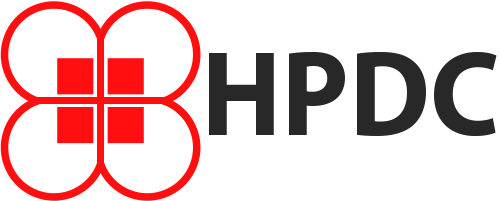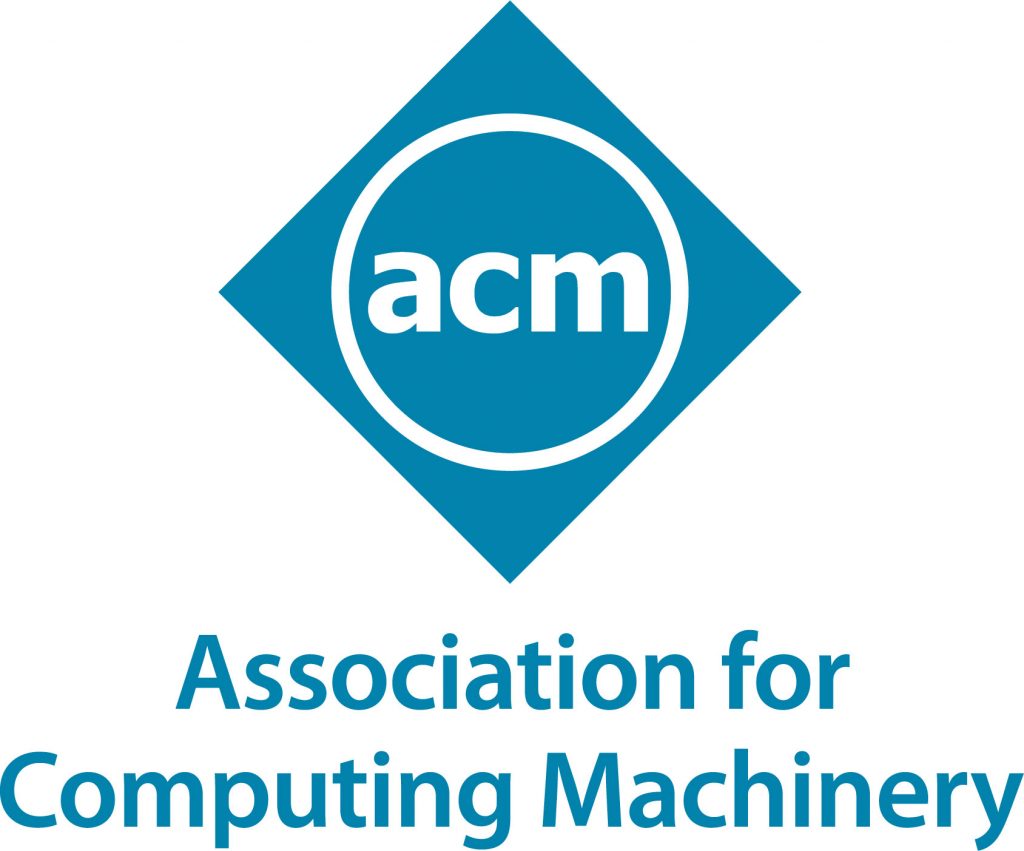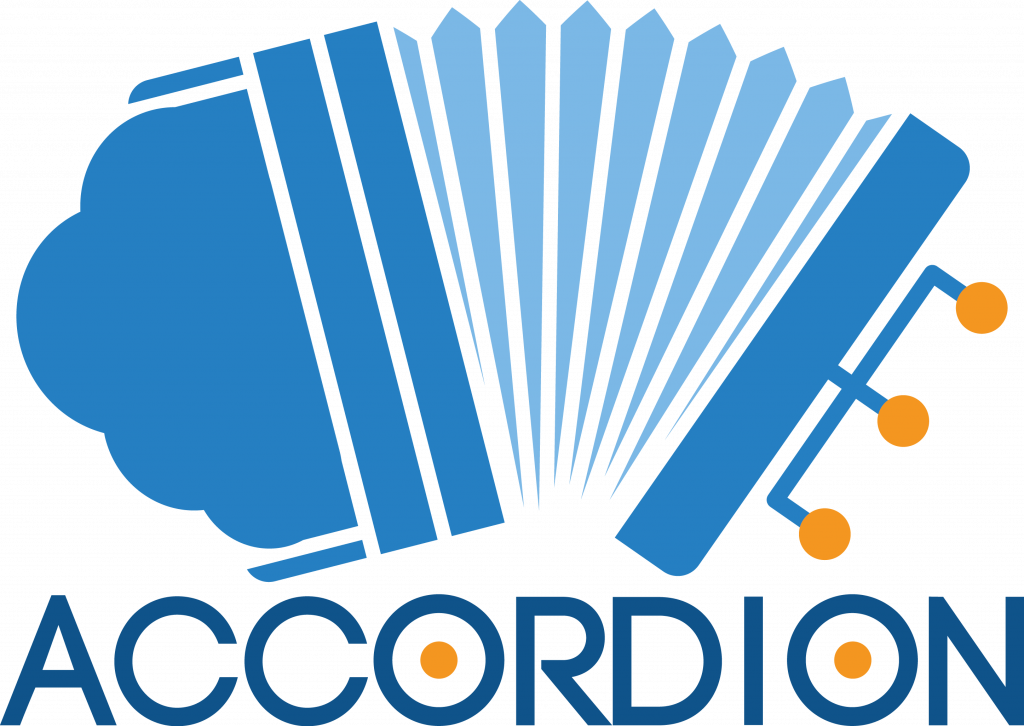FRAME
3rd workshop on Flexible Resource and Application Management on the Edge
In association with ACM HPDC 2023
Orlando, Florida, United States
June 20th, 2023
We are proud to introduce the 3rd workshop on Flexible Resource and Application Management on the Edge to researchers, industry stakeholders, academics and PhD students.
In association with
IMPORTANT DATES
-
6 April (firm) 26 March, 2023: Submission of regular papers and WIP papers -
12 April (firm) 26 March, 2023: Submission of projects -
25 April 23 April 2023: Notification of paper acceptance/rejection -
10 May 3 May(firm) 2023: Camera-ready paper submission -
20 June 2023: Workshop Day !
- Program
- Registration
- Camera ready submissions
June 20 – FRAME 2023 Program (room Magnolia 19)All times shown below are in EDT (UTC-5)
|
|
|
Session 1 Introduction and Opening Session Starting time 09:00 – Ending time 10:05
|
Welcome presentation (20 min)
Keynote: An Intelligent Continuum for Intelligent Applications (45 min) Speaker: Patrizio Dazzi (University of Pisa, Italy) |
|
Session 2 Emerging Technologies for Intelligent Edge Computing and Multi-Agent Systems Starting time 10:10 – Ending time 11:00
|
DATA7: A Dataset for Assessing Resource and Application Management Solutions at the Edge (20 Talk + 5 Q&A) Emanuele Carlini (National Research Council of Italy (ISTI-CNR)), Massimo Coppola (National Research Council of Italy (ISTI-CNR)), Patrizio Dazzi (University of Pisa, Italy), Luca Ferrucci (University of Pisa, Italy), Hanna Kavalionak (National Research Council of Italy (ISTI-CNR)), Matteo Mordacchini (National Research Council of Italy (IIT-CNR))
Multi-Agent Deep Reinforcement Learning for Weighted Multi-Path Routing (20 Talk + 5 Q&A) Theodoros Theodoropoulos (Harokopio University of Athens), Dimitrios Kafetzis (Harokopio University of Athens), John Violos (Harokopio University of Athens), Antonios Makris (Harokopio University of Athens), Konstantinos Tserpes (Harokopio University of Athens) |
|
Coffee time Starting time 11:00 – Ending time 11:20 |
|
|
Session 3 Edge-Cloud Continuum orchestration and resource management Starting time 11:20 – Ending time 12:35 |
Real-time Monitoring and Analysis of Edge and Cloud Resources (20 Talk + 5 Q&A) Ioannis Korontanis (Harokopio University of Athens), Antonios Makris (Harokopio University of Athens), Theodoros Theodoropoulos (Harokopio University of Athens), Konstantinos Tserpes (Harokopio University of Athens)
Simulating FaaS orchestrations in the Cloud-Edge continuum (20 Talk + 5 Q&A) Alessio Matricardi (University of Pisa, Italy), Alessandro Bocci (University of Pisa, Italy), Stefano Forti (University of Pisa, Italy), Antonio Brogi (University of Pisa, Italy)
Contention-aware Performance Modeling for Heterogeneous Edge and Cloud Systems (20 Talk + 5 Q&A) Ismet Dagli (Colorado School of Mines, USA), Andrew Depke (Colorado School of Mines, USA), Andrew Mueller (Colorado School of Mines, USA), Md Sahil Hassan (University of Arizona, USA), Ali Akoglu (University of Arizona, USA), Mehmet Esat Belviranli (Colorado School of Mines, USA) |
|
Lunch Starting time 12:35 – Ending time 14:00 |
|
|
Session 4 Research Project Session: Exploring Innovations Starting time 14:00 – Ending time 15:30
|
Innovation Potential of the ACCORDION Platform (20 Talk + 5 Q&A) Emanuele Carlini (National Research Council of Italy (ISTI-CNR)), Patrizio Dazzi (University of Pisa, Italy), Konstantinos Tserpes (Harokopio University of Athens), Lorenzo Blasi (Hewlett Packard Enterprise, Italy), Marco Di Girolamo (Hewlett Packard Enterprise, Italy), Dariusz Dober (BlueSoft sp. z o.o, Poland) TEACHING: A computing Toolkit for building Efficient Autonomous appliCations leveraging Humanistic INtelliGence (20 Talk + 5 Q&A) Davide Bacciu (University of Pisa, Italy), Konstantinos Tserpes (Harokopio University of Athens), Massimo Coppola (National Research Council of Italy (ISTI-CNR)), Georg Macher (TU Graz, Austria), Claudio Gallicchio (University of Pisa, Italy), Omar Veledar (AVL, Austria), Anna Maria Anaxagorou (Information Technology for Market Leadership, Greece), Patrizio Dazzi (University of Pisa, Italy)
EDGELESS Project: On the Road to Serverless Edge AI (20 Talk + 5 Q&A) Emanuele Carlini (National Research Council of Italy (ISTI-CNR)), Claudio Cicconetti (National Research Council of Italy (ISTI-CNR)), Antonio Paradell (Worldline, Barcelona, Spain)
Closing |
We are pleased to inform you that registration for the main conference is now open. As a friendly reminder, please note that at least one author for each accepted paper is required to register and pay the registration fee.
The FRAME 2023 workshop will be held on June 20th in Orlando, Florida, as part of the HPDC 2023 (International Symposium on High-Performance Parallel and Distributed Computing, June 20-23) and FCRC 2023 (Federated Computing Research Conference, June 16-23).
To complete the registration process, please register for both FCRC 2023 and HPDC 2023. Please keep in mind that this year, HPDC 2023 and FRAME 2023 will be in-person by default. To register, please follow the instructions on the FCRC 2023 web page(the early registration discount is valid until May 18):
https://web.cvent.com/event/ce
We look forward to seeing you at theconference!
Contact all chairs at <frame-workshop@accordion-proj
The deadline for submitting the camera ready of your FRAME contribution and all related material is 3rd of May extended to 10th of May.
ATTENTION: Most importantly, camera ready files will not be submitted to hotcrp. Camera ready files will be submitted through the Sheridan-ACM Submission System. Mechanisms of submission and detailed instructions concerning the final camera ready submissions for the FRAME workshop are to be found here:
https://www.scomminc.com/pp/ac
Concerning the above linked instructions:
– Expect an email from rightsreview@acm.org with a link to compile the copyright form, compile that eform, save the answer you get from the system
– Please double check that that the latest ACM sigconf template is used and all headers are correctly set for the final submission
– Please take into account the class of the submission (possibly
reassigned during the review phase) when computing the page limits and preparing the final version.
– The instructions address both MSword and Latex submissions
– The instructions ask that you state the correct (1) copyright
information or (2) license to publish or (3) permission to publish to be present in the paper; this depends on the copyright eform
– The instructions state the necessary information about authors (contact, institution etc) that should be present in the paper
– The instructions state how to set the abstract in the ACM Digital Library, which shall match the one in the paper
– The instructions state how to submit references of your paper for inclusion in the ACM DL
– The instructions state how to set the ACM classification in the paper (this is mandatory)
In the following we recap the main contents that must be provided and the relevant deadline, but please always double check the instructions from the publisher provided above.
Mandatory material, deadline is May 3 extended to May 10.
– The final PDF of the submission
– The source file(s) (MS Word or latex) in the format specified
NOTE: this deadline is the hard deadline. We suggest uploading all the requested material before the deadline in order to avoid any last minute problems.
Contact all chairs at <frame-workshop@accordion-proj
- Author Instructions
- Topics of Interest
- Call for Papers
- Program Committee
Submissions and attendance
Accepted papers will be published in the conference Proceedings and in the ACM digital Library. Submitted papers must be original work that has not appeared in and is not under consideration for another conference or a journal. Every submitted paper will be reviewed by at least three members of the Program Committee. Reviewing will be single blind.
Authors are invited to submit papers of the following types and lengths, in the ACM Proceedings format style:
- Regular papers (maximum 8 pages + 1 extra pages) should present innovative works whose claims are supported by solid justifications.
- Short papers (maximum 4 pages + 1 extra page) should target position papers.
- Work-in-Progress (maximum 2 pages+1 extra page) should be new and promising approaches that still await full development and validation.
- Projects session contributions (maximum 3 pages +1 extra page), see below.
Submissions will be received via HotCRP: https://frame2023.hotcrp.com/ . Please be sure to register your submission on HotCRP, upload the PDF of the paper, and freeze the submission before the deadline.
Please note that registering on the submission site with a title and meaningful abstract by the earliest deadline is required for enabling the actual paper submission. Proofs and additional material omitted due to space constraints can be put into an appendix to be read at the reviewers’ discretion. Proofs added into appendix will not be published in the proceedings.
This year FRAME introduces a session presenting significant research projects strongly related to the workshop. Project presentations are meant to be short surveys oriented to a technical audience, detailing the approach of an ongoing or recently completed project, fostering discussion within the workshop about state of the art approaches. The reviews for this session will consider primarily the project relevance and the presentation contribution to the workshop.
FRAME proceedings will be published by ACM in the HPDC proceedings companion book. Additionally, we are working to organise a Journal Special Issue dedicated to the topics of the workshop. Authors of selected papers will be invited to submit extended versions of their work to the special issue. The authors must be prepared to sign a copyright transfer statement. At least one author of each accepted paper/project must register to the workshop by the early date, to be indicated by the organizers, and *must* present the paper.
- Monitoring of Resources and Applications at the Edge
-
Efficient management of storage at the Edge
-
Lightweight virtualization tools and techniques for Edge devices
-
Novel Computing and Data Architectures for the Cloud/Edge Continuum and Federations
-
Efficient orchestration and Resources management for the Cloud/Edge continuum
-
Adaptive management of Applications in the Cloud/Edge continuum
-
Application Models for the Cloud/Edge continuum
-
Edge OS approaches for hyper-distributed applications
-
Fault detection and prevention in the Cloud/Edge continuum
-
QoE/QoS modeling and assessment for the Cloud/Edge continuum
-
ML/AI techniques and algorithms for Cloud/Edge orchestration
-
Distributed infrastructures, architectures, network protocols for ultra low latency
-
Static and adaptive algorithm and techniques for 3D point cloud
-
Cybersecurity and privacy preservation in the Cloud/Edge Continuum
-
Infrastructure as Code and automation in the Cloud/Edge Continuum
-
Next-gen applications in the Continuum like AR, VR and Holography
Call for papers
! Submissions are open !
FRAME 2023 : 3rd Workshop on Flexible Resource and Application Management on the Edge
Affiliated with the 32nd ACM International Symposium on High-Performance Parallel and Distributed Computing (HDPC) 2023
as part of the
ACM Federated Computing Research Conference (FCRC)
Key deadlines:
3 April, 2023: Title and abstract submission
6 April, 2023: Submission of regular papers and WIP papers
This year besides regular, short, and work-in-progress papers we open an additional session dedicated to research projects!
Cloud computing architectures and related paradigms are gaining an ever increasing degree of popularity and interest both from the industrial and scientific community. They allow customers to “outsource” the management of physical resources by renting a variable amount of resources according to their actual needs, in a pay-per-use fashion. Research and technological efforts in this field keep expanding with the emergence of Edge computing infrastructures, as new problems and exploitation opportunities surface.
Cloud and Edge infrastructures can work together to fulfill requirements from a variety of applications, composing the so-called Cloud/Edge Continuum. Clouds must provide appropriate levels of performance to large groups of different users, whereas Edge resources act as a first layer of computing capacity that is close to the user, enabling reduced latency and increasing the exploitable portion of network bandwidth. Edge infrastructures typically belong to different administrative domains, are resource constrained with respect to central Clouds, and are composed of a very heterogeneous set of resources, introducing new challenges in the fields of security, orchestration and resource management.
From a business point of view, organizations can benefit from the distributed nature of Edge computing to deploy dedicated services on a context-driven, tenancy-driven or time-driven basis to serve certain areas. From a technological perspective, the scalability, interoperability, and efficient (de-)allocation of resources at the edge can enable a whole new set of scenarios. Interactive and time-sensitive services can be extended toward the edge, thereby closing the proximity gap with (potential) users. Data collection can happen within geographically/administratively bounded areas, ensuring compliance with data privacy and data retention policies, as well as enabling pervasive and distributed security provisioning.
Real-time data-driven decisions can be promptly taken on the spot, without the need to wait for data to travel to the Cloud and back, and allowing collaborative and interactive systems to perform live data processing fully exploiting the closest available devices. The immersive data processing of Extended Reality (XR) applications such as VR, AR and Holography is a key example where dynamically shifting computation towards the network edges can also allow for a better computation to communication tradeoff, smoother connections and improved perceived QoE and collaboration.
Improvement and innovation opportunities like these call for new solutions and theoretical frameworks. The 3rd International Workshop on Flexible Resource and Application Management on the Edge (FRAME 2023) aims at bringing together cloud and edge computing experts from academia and industry in order to identify new challenges, discuss novel systems, methods and approaches for the management of resources in cloud-edge infrastructures, as well as to promote this vision toward academia and industry stakeholders.
Topics of interest
Topics of interest for the workshop include but are not limited to the following ones:
- Monitoring of Resources and Applications at the Edge
- Efficient management of storage at the Edge
- Lightweight virtualization tools and techniques for Edge devices
- Novel Computing and Data Architectures for the Cloud/Edge Continuum and Federations
- Efficient orchestration and Resources management for the Cloud/Edge continuum
- Adaptive management of Applications in the Cloud/Edge continuum
- Application Models for the Cloud/Edge continuum
- Edge OS approaches for hyper-distributed applications
- Fault detection and prevention in the Cloud/Edge continuum
- QoE/QoS modeling and assessment for the Cloud/Edge continuum
- ML/AI techniques and algorithms for Cloud/Edge orchestration
- Distributed infrastructures, architectures, network protocols for ultra low latency
- Static and adaptive algorithm and techniques for 3D point cloud
- Cybersecurity and privacy preservation in the Cloud/Edge Continuum
- Infrastructure as Code and automation in the Cloud/Edge Continuum
- Next-gen applications in the Continuum like AR, VR and Holography
Important Dates
3 April (firm), 2023: Title and abstract submission deadline
6 April (firm), 2023: Submission of regular papers and WIP papers deadline
12 April (firm), 2023: Submission of projects
22 April 2023: Notification of paper acceptance/rejection
3 May 2023: Camera-ready paper submission
20 June 2023: Workshop
Submissions and attendance
Accepted papers will be published in the conference Proceedings and in the ACM digital Library. Submitted papers must be original work that has not appeared in and is not under consideration for another conference or a journal. Every submitted paper will be reviewed by at least three members of the Program Committee. Reviewing will be single blind.
Authors are invited to submit papers of the following types and lengths, in the ACM Proceedings format style:
- Regular papers (maximum 8 pages + 1 extra pages) should present innovative works whose claims are supported by solid justifications.
- Short papers (maximum 4 pages + 1 extra page) should target position papers.
- Work-in-Progress (maximum 2 pages+1 extra page) should be new and promising approaches that still await full development and validation.
- Projects session contributions (maximum 3 pages +1 extra page), see below.
Submissions will be received via HotCRP: https://frame2023.hotcrp.com/
Please note that registering on the submission site with a title and meaningful abstract by the earliest deadline is required for enabling the actual paper submission. For full submission rules please refer to the workshop website.
This year FRAME introduces a session presenting significant research projects strongly related to the workshop. Project presentations are meant to be short surveys oriented to a technical audience, detailing the approach of an ongoing or recently completed project, fostering discussion within the workshop about state of the art approaches. The reviews for this session will consider primarily the project relevance and the presentation contribution to the workshop.
FRAME proceedings will be published by ACM in the HPDC proceedings companion book. Additionally, we are working to organise a Journal Special Issue dedicated to the topics of the workshop. Authors of selected papers will be invited to submit extended versions of their work to the special issue. The authors must be prepared to sign a copyright transfer statement. At
least one author of each accepted paper/project must register to the workshop by the early date, to be indicated by the organizers, and *must* present the paper.
Organizers:
* Hanna Kavalionak, ISTI-CNR, hanna.kavalionak@isti.cnr.it, General Chair
* Massimo Coppola, ISTI-CNR, massimo.coppola@isti.cnr.it, Program Co-Chair
* Luca Ferrucci, University of Pisa, luca.ferrucci@unipi.it, Program Co-Chair
* Ioannis Kontopoulos, Harokopio University, kontopoulos@hua.gr, Program Co-Chair
List of program committee members:
- Jörn Altmann, Seoul National University
- Ferran Diego Andilla, Telefonica
- Lorenzo Blasi, HPE
- Emanuele Carlini, ISTI-CNR
- Patrizio Dazzi, University of Pisa
- Karim Djemame, University of Leeds
- Maria Fazio, University of Messina
- Katsiaryna Labunets, University of Utrecht
- Damiano di Francesco Maesa, University of Pisa
- Antonis Makris, Harokopio University
- Gabriele Mencagli, University of Pisa
- Alberto Montresor, University of Trento
- Matteo Mordacchini, IIT-CNR
- Marcelo Pasin, University of Neuchâtel
- Raffaele Perego, ISTI-CNR
- Evangelos Psomakelis, ICCS-NTUA
- Nishant Saurabh, University of Utrecht
- Domenico Talia, University of Calabria
- Domenico Talia, University of Calabria
- Alberto Terzi, HPE
- Konstantinos Tserpes, Harokopio University of Athens
- Massimo Torquati, University of Pisa
- José Luis Vázquez-Poletti, Universidad Complutense de Madrid
- Massimo Villari, University of Messina
- John Violos, ICCS-NTUA
- Artsiom Yautsiukhin, IIT-CNR
-
Jörn Altmann, Seoul National University
-
Ferran Diego Andilla, Telefonica
-
Lorenzo Blasi, HPE
-
Emanuele Carlini, ISTI-CNR
-
Patrizio Dazzi, University of Pisa
-
Karim Djemame, University of Leeds
-
Maria Fazio, University of Messina
-
Katsiaryna Labunets, University of Utrecht
- Damiano di Francesco Maesa, University of Pisa
-
Antonis Makris, Harokopio University
-
Gabriele Mencagli, University of Pisa
- Andrea Michienzi, University of Pisa
-
Alberto Montresor, University of Trento
-
Matteo Mordacchini, IIT-CNR
-
Marcelo Pasin, University of Neuchâtel
-
Raffaele Perego, ISTI-CNR
-
Evangelos Psomakelis, ICCS-NTUA
- Laura Ricci, University of Pisa
-
Nishant Saurabh, University of Utrecht
-
Domenico Talia, University of Calabria
-
Alberto Terzi, HPE
-
Konstantinos Tserpes, Harokopio University of Athens
-
Massimo Torquati, University of Pisa
-
José Luis Vázquez-Poletti, Universidad Complutense de Madrid
-
Massimo Villari, University of Messina
-
John Violos, ICCS-NTUA
-
Artsiom Yautsiukhin, IIT-CNR
Organizing Committee
- Hanna Kavalionak
- Ioannis Kontopoulos
- Massimo Coppola
- Luca Ferrucci
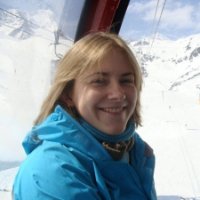 Hanna Kavalionak, ISTI-CNR, hanna.kavalionakATisti.cnr.it, General Chair
Hanna Kavalionak, ISTI-CNR, hanna.kavalionakATisti.cnr.it, General Chair
Hanna is a researcher at the ISTI-CNR. Previously, she has been a post-doc researcher at the University of Florence, at the Department of Mathematics and Informatics in the group “Resilient Computing Lab”. She is currently working in Cloud and Edge resource indexing and discovery in the context of the H2020 ACCORDION and CHARITY european research projects. She received her PhD from the University of Trento, with the thesis “Autonomous regulation of resources in cloud-based, peer-assisted distributed systems”. Her research interests include peer-to-peer networks, data analyses solutions for indoor localization, and modeling and dependability analyses of complex cyber-physical systems of systems, in which she has published several papers in international conferences and journals.
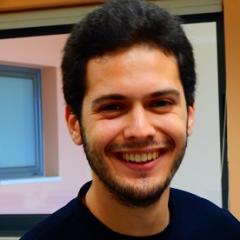 Ioannis Kontopoulos, Harokopio University, kontopoulosAThua.gr, Program Co-Chair
Ioannis Kontopoulos, Harokopio University, kontopoulosAThua.gr, Program Co-Chair
Ioannis received his BSc from the department of Informatics and Telematics of Harokopio University of Athens in 2016 and completed his PhD in 2022. His PhD revolved around machine learning techniques in spatio-temporal data, distributed and real-time processing. Currently, he is a Postdoctoral researcher at the same department. His major research interests revolve around Distributed Systems, Big Data analysis and processing, real-time stream processing, spatio-temporal and trajectory analysis, and machine learning. He has been involved in several EU and national funded projects including Datacron (H2020), MASTER (H2020-MSCA-RISE-2020), Smartship (H2020-MSCA-RISE-2020) and GLASSEAS (OP Human Resources Development, Education and Lifelong Learning).
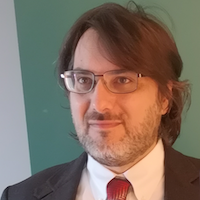 Massimo Coppola, ISTI-CNR, massimo.coppolaATisti.cnr.it, Co-Chair
Massimo Coppola, ISTI-CNR, massimo.coppolaATisti.cnr.it, Co-Chair
Massimo is a researcher at the ISTI-CNR. He holds a PhD in Computer Science at the University of Pisa, where he was with the Parallel Architectures research group. He still teaches Advanced Parallel Computing courses there to date. He published more than 70 papers in international conferences and journals. His research interests revolve around parallel and distributed platforms and programming, and their application to real world applications. They notably include Cloud computing and Federations, tools and performance models for structured parallel computing, as well as all aspects of exploiting large-scale heterogeneous parallel platforms, that is run-time support, deployment and distributed management of parallel, self-adapting applications; Data Mining and Machine Learning for large data sets; FPGA and GPU based parallel computing. He has been involved, as a proposer and participant, in a number of EU projects including lately H2020 EU projects Basmati, ACCORDION, TEACHING, and CHARITY. He was the CNR team leader and head of the Cloud Federation work package in FP7 Contrail, and he is technical manager of ACCORDION. He was (co)organizer of several past workshops and conferences, including some in the HPC-GECO – CompFrame series and those reported above.
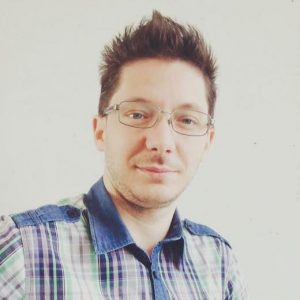 Luca Ferrucci, ISTI-CNR, luca.ferrucciATisti.cnr.it, Program Co-Chair
Luca Ferrucci, ISTI-CNR, luca.ferrucciATisti.cnr.it, Program Co-Chair
Luca is a researcher at the Università di Pisa since October 2022. Previously, he has been a post-doc researcher at the ISTI-CNR in Pisa since 2014. His PhD thesis, obtained at the Politecnico di Milano during 2013, was related to the field of integration of formal methods in the industry control code development process, by leveraging temporal logic based modelization, validation and verification tools and techniques. In the last years, his interests and research widely ranging from eGovernment tools and protocols for Certified electronic email and interoperability issues between different international standards, to research in domotics interoperability frameworks, as member of the SHELL italian national research project and, during last year, orchestration and resource management in Cloud and Edge cloud computing as a member of the H2020 ACCORDION european research project and the H2020 Charity european research project. Actually, his main research interests are concentrated on scheduling and dynamic deploying of Hpc system jobs.
